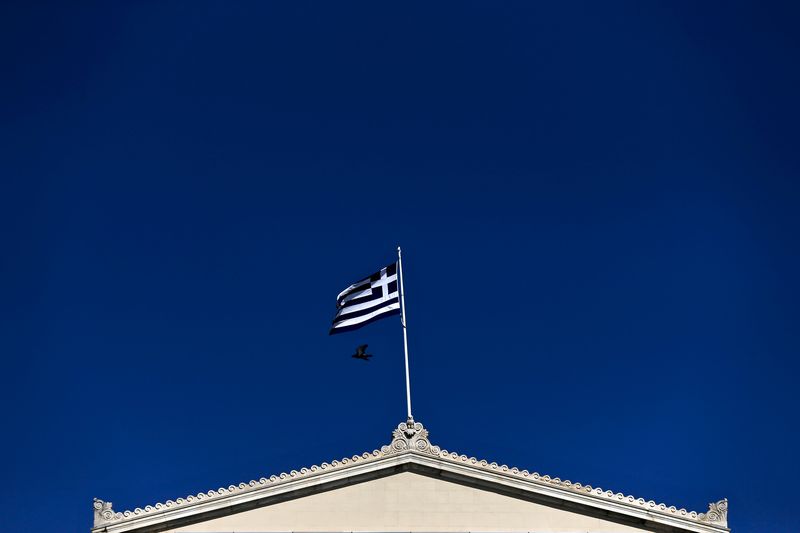FRANKFURT (Reuters) - The European Central Bank's Governing Council on Wednesday may nudge up the amount of Emergency Liquidity Assistance teetering Greek banks can borrow, as Athens struggles to avert a potentially catastrophic funding crunch.
Greece wants the ECB to increase the liquidity lifeline and also allow its banks to buy more short-term treasury bills, easing a squeeze that has already led it to commandeer cash reserves from municipalities and other government bodies.
People with knowledge of ECB deliberations predict the governing council will agree to a further extension of emergency liquidity, but many are doubtful it will do much more.
Such an outcome would keep Greece's banking system afloat but do little more to help the government cover some 950 million euros ($1.07 billion) it must pay the International Monetary Fund by May 12.
On Wednesday, Athens sells 875 million euros of six-month Treasury bills to refinance a maturing issue and a 200 million euro repayment to the IMF.
A Greek official familiar with the matter told Reuters that Athens has now made that IMF payment.
But cash-strapped Athens is quickly running out of money while it tries to persuade its euro zone partners and the IMF that it is implementing enough reforms for them to release the more money under its bailout agreement.
On May 12 Greece must pay a further 750 million euros to the IMF, which is expected to be a bigger struggle.
One problem for Greece is the ECB's 3.5 billion euro limit on the amount of short-term T-bills that Greek banks can offer it in return for emergency funding.
As these banks are the only major buyers for such government debt, the cap effectively stops Athens from borrowing more.
But increasing the cap would hit a number of hurdles, not least legal objections from Germany's Bundesbank, which argues that it breaks the rule that central banks should not finance governments.
The ECB's bank supervisors also recently wrote to Greek banks instructing them not to increase their exposure to government or state institutions, a person familiar with the matter said.
Euro zone central bank sources say hardliners led by the Bundesbank want the "haircut" or discount the ECB imposes on Greek securities offered as collateral for funding to be increased after recent ratings downgrades of Greece and its banks.
That looks unlikely for the time being, however, as it would only tighten the squeeze on Athens. The ECB would be reluctant to upset negotiations with such a move as talks reach their climax.
One euro zone central bank source said he did not expect the council of euro zone central bankers to make a dramatic change that would put Greek banks in immediate difficulty while negotiations are continuing.

($1 = 0.8903 euros)